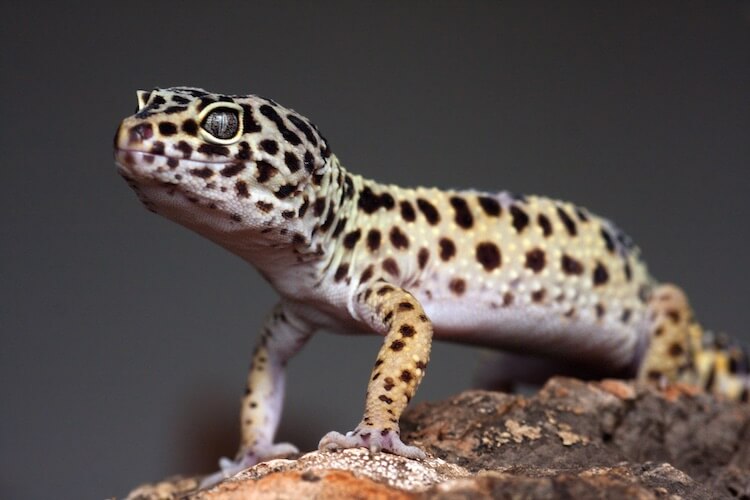If your pet gecko eats well and poops well, it is in perfect health, but the problem arises when they don’t poop at all. Did you know that by merely looking at gecko poop, you can learn a lot about its internal health? If it’s a baby gecko you own, it can poop several times in a day as it eats that many times.
If it’s a juvenile in the cage, they may poop once daily in their development stage. However, adult geckos tend to eat every two to three days, and their pooping coincides with their eating.

Did you know that over 4.6 million households have reptiles as pets? The number of adults and children preferring non-canines and non-felines as pets is increasing.
Loose Substrate Is Harmful to Your Gecko’s Gut
Loose substrates like calcium gravel, corn cob, and walnut shells (crushed), reptile sand, chalk sand, ordinary sand, wood chips, etc., are a wrong choice and should never be used. Geckos tend to explore their surroundings by licking and will gobble up any loose substrate coming their way.
Your gecko may swallow such stuff. However, none of it gets digested and starts building up inside. Their tummies are so filled up that they can no longer eat anything. You’ll be surprised to find no gecko poop for several days, and your pet may become lethargic and start acting funny.
If you don’t take them to a vet, they will die of starvation. So, when there’s no poop to scoop in the cage, you need to watch your gecko closely.
Check on the Poop’s Consistency
You’ll find that your gecko’s poop is well-formed, dark brown, with a whitish salt attached to it. Such poop shows your gecko is in perfect health. And mind you, fresh gecko poop stinks awful.
If you change your gecko’s diet, the poop’s consistency will change, but your gecko is still healthy. Some foods can produce runny poop, which is perfectly alright. However, if such a consistency continues for a few days, you better check with your vet.
Mistaking Something Else for Poop
Sometimes you may be baffled by what you find in your pet’s cage. It doesn’t look like poop, and then what can it be? More often, it is regurgitation, as your gecko has some digestion problems. Healthy geckos rarely regurgitate.
Check the cage if some substrate is strewn or disturbed. It could be sphagnum moss shed skin it swallowed and threw up. If your gecko keeps regurgitating, a fecal test may be required to rule out cryptosporidium.
Your gecko may not be eating well, and you may notice fat loss in its tail (that’s where the fat is stored). Parasitic infestation is common, and unless tests are done, and remedies are sought, your gecko may die.
Look out for typical symptoms, including regurgitation, loss of appetite, dehydration, diarrhea, weight loss, listlessness, and lethargy. A severe parasitic infestation weakens your gecko and could eventually kill them.
As life cycles of parasites differ, it is crucial to determine what parasite has affected your gecko and administer the antibiotics prescribed by your vet. Strong medications may not agree with your gecko, and only a herp vet will know the best course of treatment.
Summing it Up
With millions of people preferring to have reptiles as pets, the number of gecko pet owners increases. Keeping your geckos safe and healthy is crucial for their longevity.
Leave a Reply